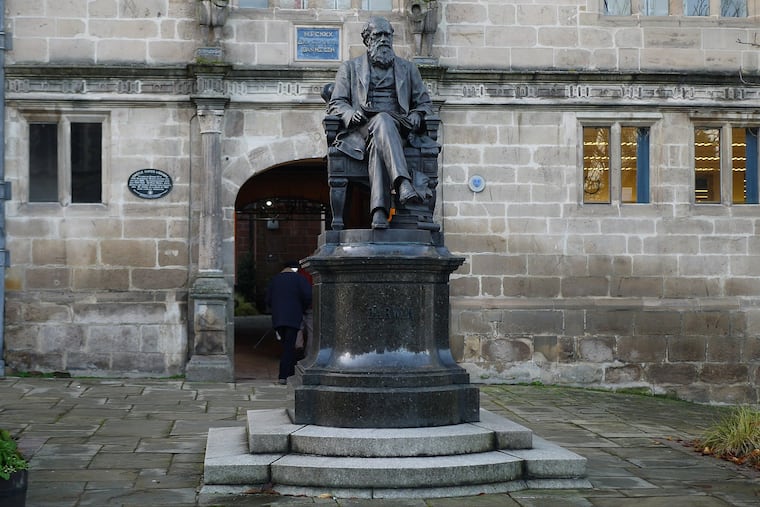Scientists should counter the myth of biological race | Opinion
Science educators, in particular, must speak out with one voice in declaring that there is no biological basis for race.

The University of Pennsylvania’s medical school apologized last month for unethical experiments on incarcerated, mostly Black men, often without their consent, conducted by longtime faculty member Albert Kligman. In response, Adrienne D. Jones-Alston, daughter of one of the men experimented on, urged Penn to go beyond its apology to “build trust about medical research” and argued for concrete investments in Black lives.
We agree that these efforts are critical. We would add that it is also critical for those in the medical and scientific professions to acknowledge their role in perpetuating the lie that there are different races of humans to begin with — that “races” represent biologically distinct groups.
» READ MORE: My family needs more from Penn than an apology for unethical medical experiments | Opinion
Science educators, in particular, must speak out with one voice in declaring that there is no biological basis for race. Simultaneously, we must do the difficult — but morally necessary — work of reevaluating scientific studies and medical practices with an eye toward rooting out those that continue to function under the false notion that there is a biological basis for race in humans.
The challenge for science educators is that denying biological race in humans is not an easy sell. The sophisticated efforts that college and university professors have devised to explain race, most notably the idea that “race is a social construct,” are difficult to swallow when people can see differences in skin color with their own eyes. And, of course, what we have come to understand as “race” has hugely shaped people’s lives.
However, the truth is that our eyes only give us part of the story. A more thorough exploration of the human species based on the fossil record, history, genetics, and countless scientific studies leads us to reject the hypothesis that humans can be classified into discrete races. In the early years of scientific exploration, when naturalists like Carolus Linnaeus (in 1758) and social Darwinists like Herbert Spencer (in 1864) classified people into distinct races based on physical characteristics and rough geographic distributions, these categories supported the prevailing religious and hierarchical view of the world, placing white Europeans as superior to other races. However, this framework began to unravel over 150 years ago when Charles Darwin showed in 1859 that species are not “fixed” entities but change over time, and — most importantly — that there is a natural variation among individuals of the same species.
» READ MORE: Eugenics is still a dangerous idea | Opinion
This natural variation is what we see with our own eyes. We see differences in skin color, height, weight, and a host of other physical traits. However, if race were unique among these traits in being a meaningful biological concept, then we would expect that, within the variation in skin color, there would be discreet racial boundaries. We do not see this. This makes complete sense scientifically in light of the fact that we now know that skin color is the product of a complex mix of genetic and environmental influences.
And the geographic boundaries used to define races are equally misleading. If it were true that different races of humans arose in different locations around the world, then how could we explain that populations in Africa contain more genetic variation than the rest of the world’s populations combined? These and other lines of evidence reject the idea that race is a biologically meaningful way to categorize humans. Once we acknowledge that biological race does not exist, we can begin the work of rewriting those policies still rooted in racist assumptions and eliminating those practices that rely on prejudice and myth.
In order for medicine and science to stop undermining the fight for equality for all humans, science educators must teach what science tells us — namely that we are all members of the same species. This allows us to update the phrase “race is a social construct” by affirming that “race is a social construct with no biological basis.” Once it is clear that race is not a biologically meaningful way to understand human difference, we can all better celebrate the true richness in the variation of the human experience.
Marcia O’Connell is a professor of biology at the College of New Jersey, where Zachariah Grochau-Wright is an assistant professor of biology and Christopher Fisher is an associate professor of history who teaches about race in America.